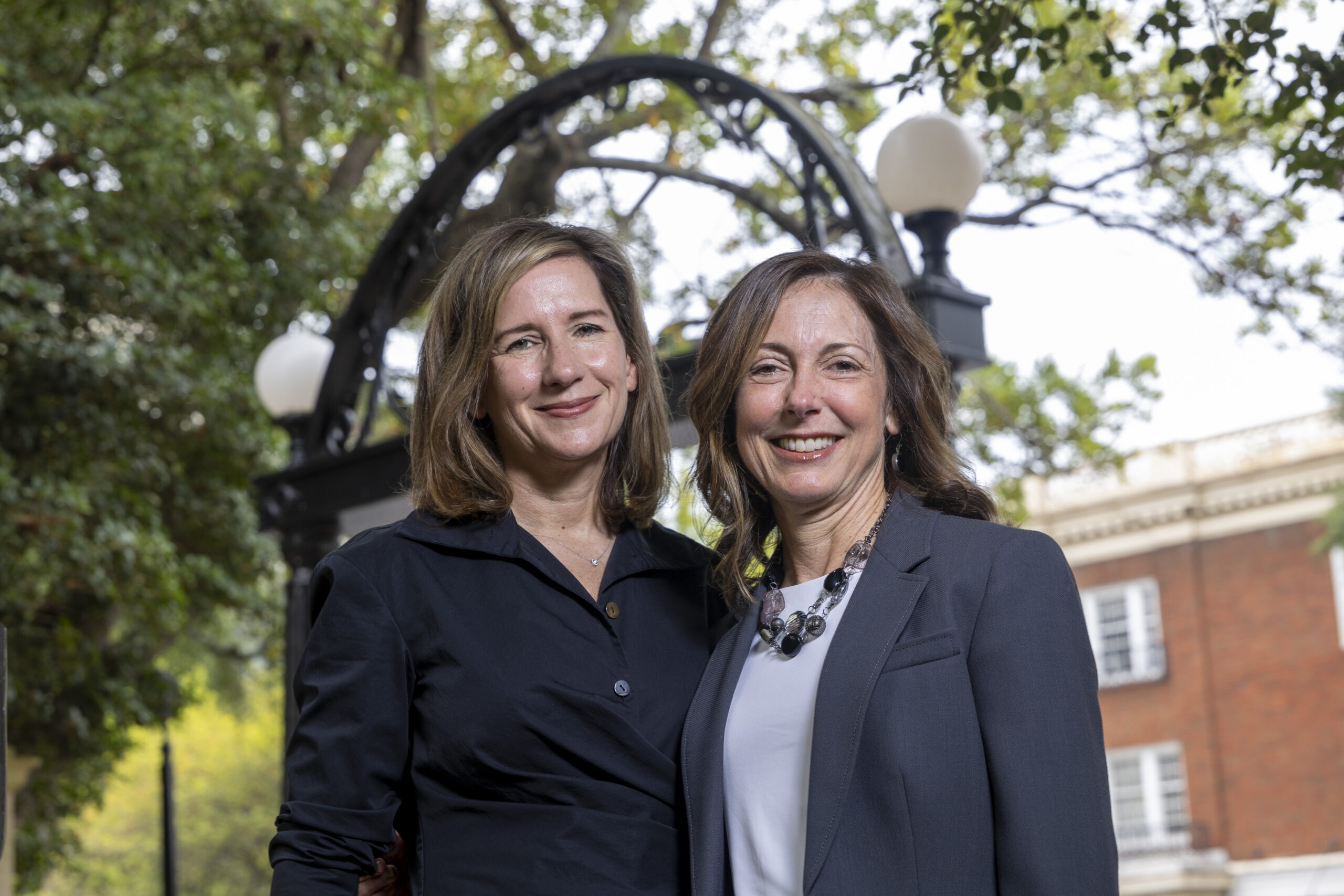Dyslexia Endorsement and Certificate Program Makes a Difference
Dyslexia Endorsement and Certificate Program Makes a Difference

Originally reported by UGA Today
From an early age, Richard W. Courts IV knew he thought differently. Diagnosed with dyslexia in sixth grade, he found school challenging but ultimately learned to thrive. “Having dyslexia taught me from an early age how to struggle and be comfortable struggling,” says Courts. “And that’s a great life skill.”
Courts went on to earn a finance degree (BBA ’95) from UGA’s Terry College of Business and become president of Atlantic Realty Company. But his struggles with learning left a lasting impression, inspiring an involvement in education that never wavered. When, through his role on the UGA Foundation Board of Trustees, he learned UGA faculty at the Mary Frances Early College of Education were developing an online graduate certificate in dyslexia education, he decided to help bring together the necessary experts and resources to make it happen.
The resulting Dyslexia Endorsement and Certificate Program, launched in 2016, is a first-of-its-kind program in Georgia, providing teachers with essential tools to support students with dyslexia. The program, offered entirely online, is especially accessible to working educators, allowing them to balance their studies with their professional lives. Courts continues to champion its impact. “It just excites me to know that there are folks out there who are pushing the boundaries and using the science and the skills we have to teach our future educators for years,” he says.
When Sayeski Met Lindstrom
The program was developed by UGA faculty members Kristin Sayeski and Jennifer Lindstrom, who have shared a passion for improving literacy education since they first met in 2011. Lindstrom, who had joined the Mary Frances Early College of Education two years earlier, wanted the college’s curriculum to focus more on literacy, reading, reading instruction, and teacher preparation. Sayeski shared those ambitions, and it took her arrival, and her partnership, to make that shift possible.
The Dyslexia Endorsement and Certificate Program, which they continue to co-direct to this day, was one of their first achievements together, but by no means their last.
Beyond their courses, the duo’s work has influenced state legislation, including Georgia’s 2019 Dyslexia Law and the 2023 Georgia Early Literacy Act, emphasizing teacher training and early intervention. In 2021, the Georgia Department of Education named Lindstrom its first statewide dyslexia coordinator. As part of that role, she travels to school districts throughout the state to meet with teachers and school administrators.
“Not unlike autism or other areas of disability, we are learning more through increased research,” says Lindstrom. “Dyslexia is not always what we thought it was.”
Sayeski is also the author of Unraveling Dyslexia: A Guide for Teachers and Families, which is required reading in several UGA courses and brings together practical, effective information from both a variety of sources and Sayeski’s own experience.
Real-World Impact
Teachers enrolled in the certificate program have the opportunity to immediately apply their learning. Recently, UGA education students provided reading interventions for young learners at Atlanta’s Schenck School, which specializes in providing a nurturing and supportive environment for K-6 students with dyslexia.
Fourth-year education major Anna Boswell says the experience enhanced her teaching skills. “Learning how to teach students and receiving feedback and professional development from trained specialists added so much to my ability to teach structured literacy lessons,” she shares.
Sayeski and Williams spearheaded the effort, which also includes a research aspect related to the literacy and language outcomes of the young students.
“The most exciting part of this project is to see the translation of what our dyslexia endorsement students have been learning in our program and then getting to see them implement and practice with young students in real time,” Sayeski says.
Rethinking Dyslexia
Dyslexia affects an estimated 5-12% of the population, though experts believe the number could be higher. As understanding evolves, educators like Sayeski emphasize practical solutions. “The key question for parents is, ‘What does my child need that is different because they have dyslexia? What are the skills my child struggles with?'” she says, explaining systematic methods for teaching students to decode words and spell effectively. Let’s talk about what this speech sound is and how do we spell this sound. There is an alphabetic code here, and this is how we unlock it.”
With its flexible online format, UGA’s program equips teachers to make a lasting difference in the lives of students with dyslexia, advancing literacy education across Georgia and beyond.
Learn more about the Dyslexia Endorsement and Certificate Program.
